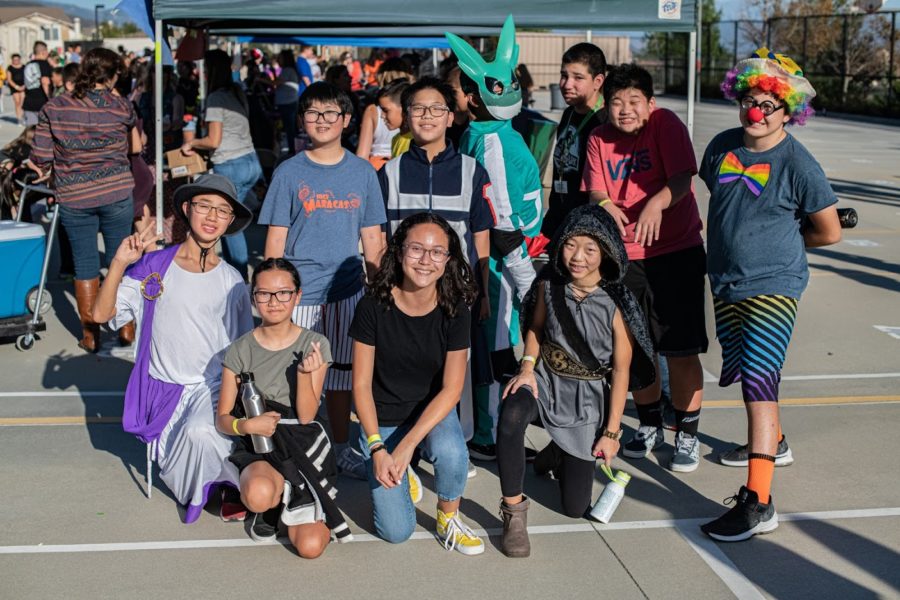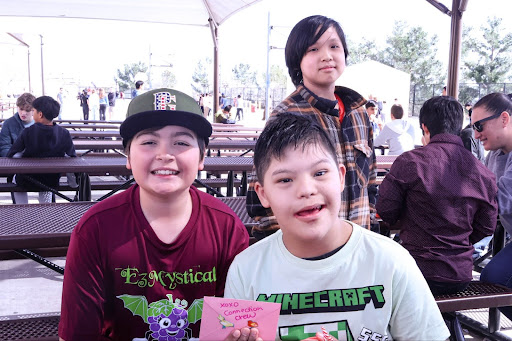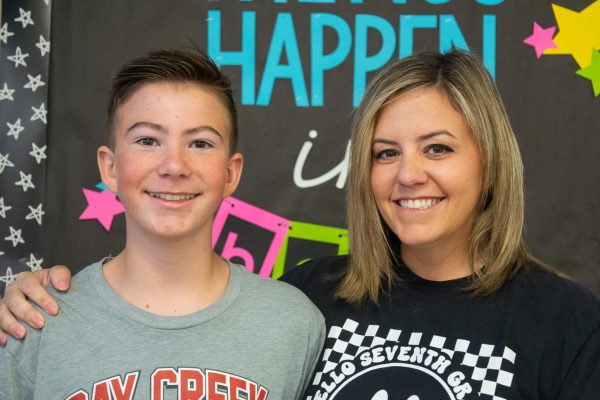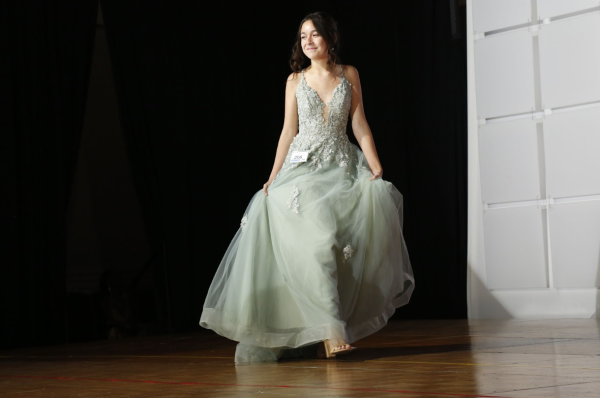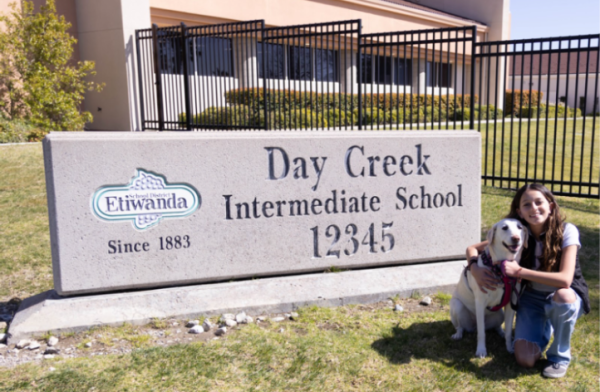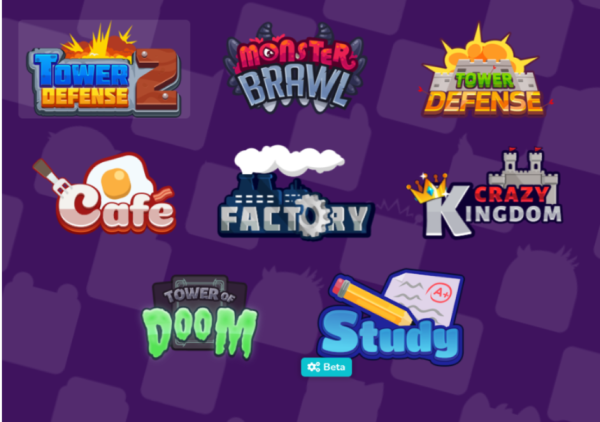Halloween Through a New Perspective
With the recent influx of different cultures at Day Creek Intermediate School, questions regarding how other countries celebrate Halloween are part of the conversation.
Costumed kids seem to be everywhere, smiling and laughing as they walk around the neighborhood, knocking on door after door asking for candy. A smaller group appears to be loitering in front of the first house on the street, watching others to see what they should do. Excited, yet hesitant, the smaller group approaches the first door seeking sweets. By the end of the street, they are running ahead of their families.
Every year, somewhere in Rancho Cucamonga, kids experience their first Halloween.
With the recent influx of different cultures at Day Creek Intermediate School, questions regarding how other countries celebrate Halloween are part of the conversation. Will students who aren’t familiar with the holiday go trick-or-treating? How do their cultures approach our traditions? What do their parents think? Will they even celebrate Halloween?
Halloween traces all the way back to the ancient Celtic festival of Samhain in Ireland. Participants would light bonfires and wear costumes to scare off spirits. Over the years, Halloween became a day of trick-or-treating, carving pumpkins, wearing costumes, devouring candy, and visiting haunted houses.
This holiday is so deeply embedded within our culture that it’s one of the most renowned events associated with America.
Because similar holidays are celebrated in countries around the world, some students who recently moved to America already have an awareness of Halloween.
“I knew (what it was), but I didn’t exactly know what you do on Halloween,” said 6th grader Hala H., from Jordan.
However, some countries besides the US still celebrate Halloween.
Eighth-grader Jose C. said, “I knew about Halloween, and I celebrated it by trick-or-treating in Jalisco, Mexico.”
Traditions continue to blend around the world, fusing different cultures. In Ireland, where Halloween originated, the holiday is celebrated much like it is in America, with trick-or-treating and costumes. Día de Los Muertos in Mexico is a well-known celebration somewhat similar to our October 31st in its costumes, skeletons, and treats, yet it honors the dead. Guy Fawkes Day occurs near Halloween, though it marks the date that Catholics attempted to blow up British Parliament, something far different than All Hallows’ Eve.
Commonalities in celebrating Halloween mean some newcomers may have already experienced something similar before coming to America.
Despite the excitement of Halloween, it’s a bit strange when you look at it from an outsider’s perspective. Groups of kids wandering around at night in costumes knocking on strangers’ doors for candy– sounds a bit dangerous, right?
Yet parents who’ve recently moved here don’t see it as much of a problem, finding it to be a significant holiday and choosing to participate in it. For some, this is surprising, due to a common cultural-religious backlash.
“Because of my religion (Christianity) we’re not supposed to celebrate it because it’s about the devil and not Christ,” said 7th grader Randy Z. “Instead we do a carnival at our church to give people more of Christ than the devil.”
Some are opposed to Halloween due to its reputation as the darkest day of the year. They may even refrain from calling it “Halloween,” preferring the names “Fall Festival” or “Fright Fest.” But none of the cultures these students came from seemed to affect their participation in the holiday.
“My parents think it’s a very unique and meaningful holiday. It’s a time to talk to new people and spend time with friends. ” James S. said, “It was really fun, (with) lots of free candy!”
In spite of the fact that these students were new to American Halloween customs, they still participated in the trick-or-treating tradition.
“Lots of people came to our door and we gave out candy. We put on costumes and got candy too,” said Hala H.
Although it contrasts with the traditions in other countries, Halloween will remain a beloved staple of American culture that anyone is welcome to celebrate.
“I think that it’s really fun!” said James S. “We went trick-or-treating and we went to the Halloween Bash and got lots of free candy.”
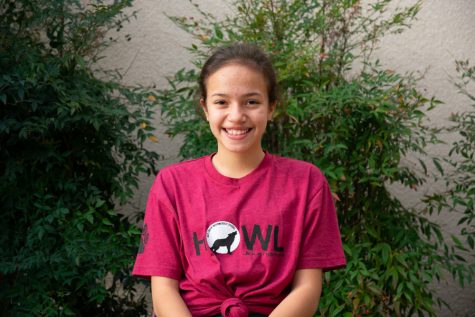
Riley is a writer for the Day Creek Howl. She enjoys volunteering at her church, reading, acting, traveling, and spending time with her family. She is...
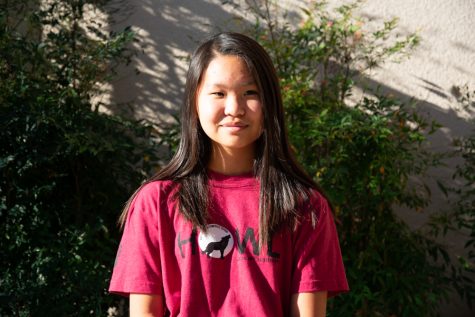
Christine Liao is a writer for the Day Creek Howl. She enjoys playing with the CYMO and reading fantasy. She is a dedicated A.R.M.Y and is eagerly anticipating...


